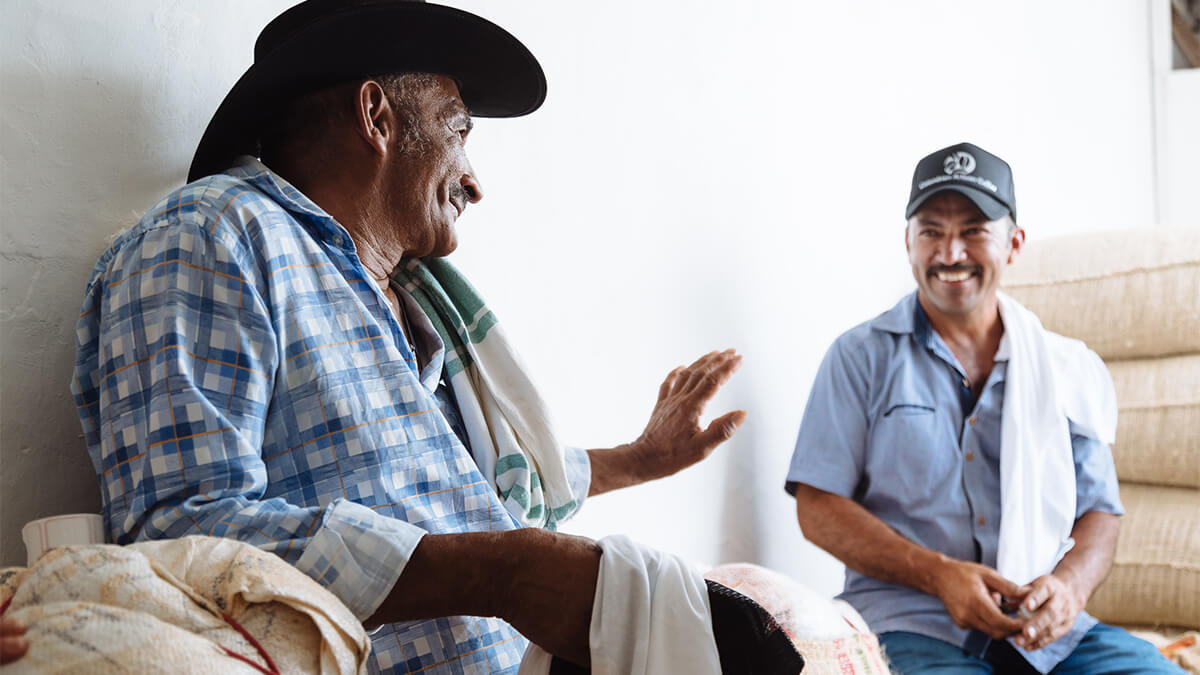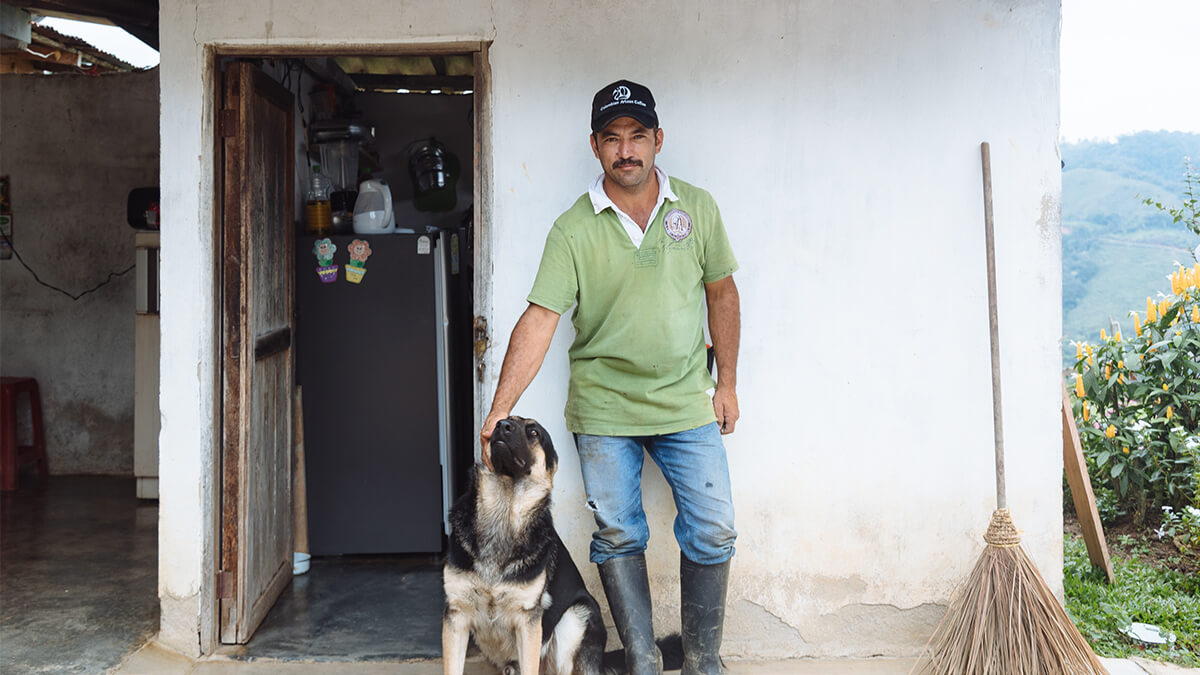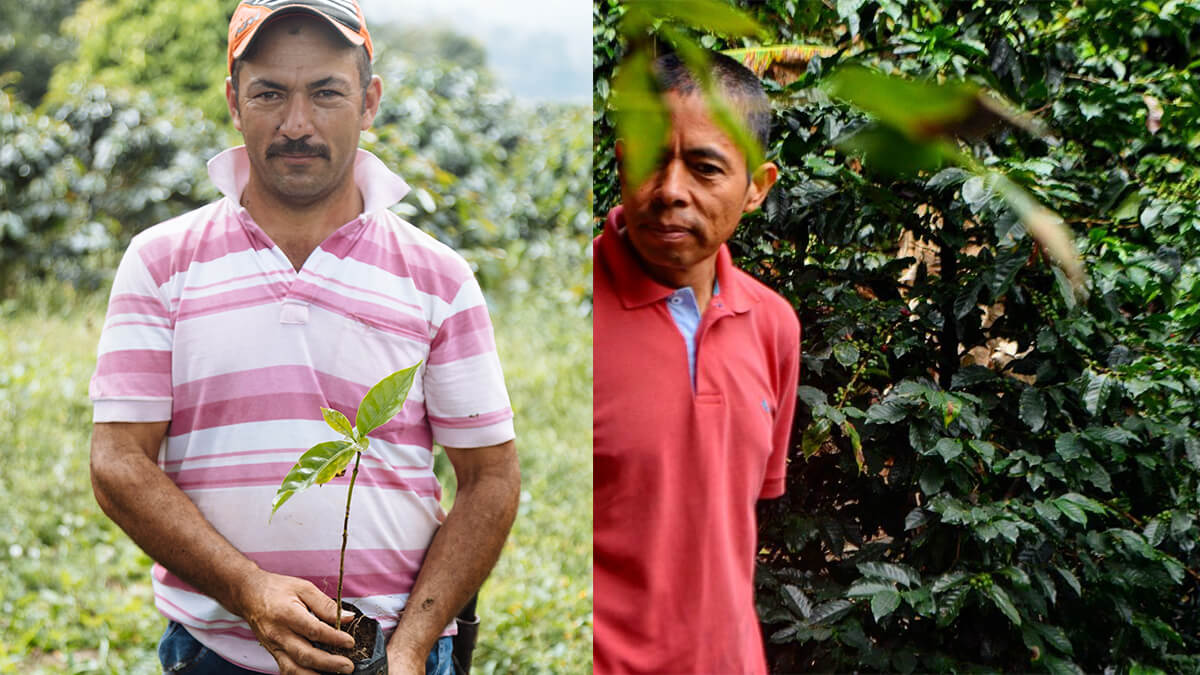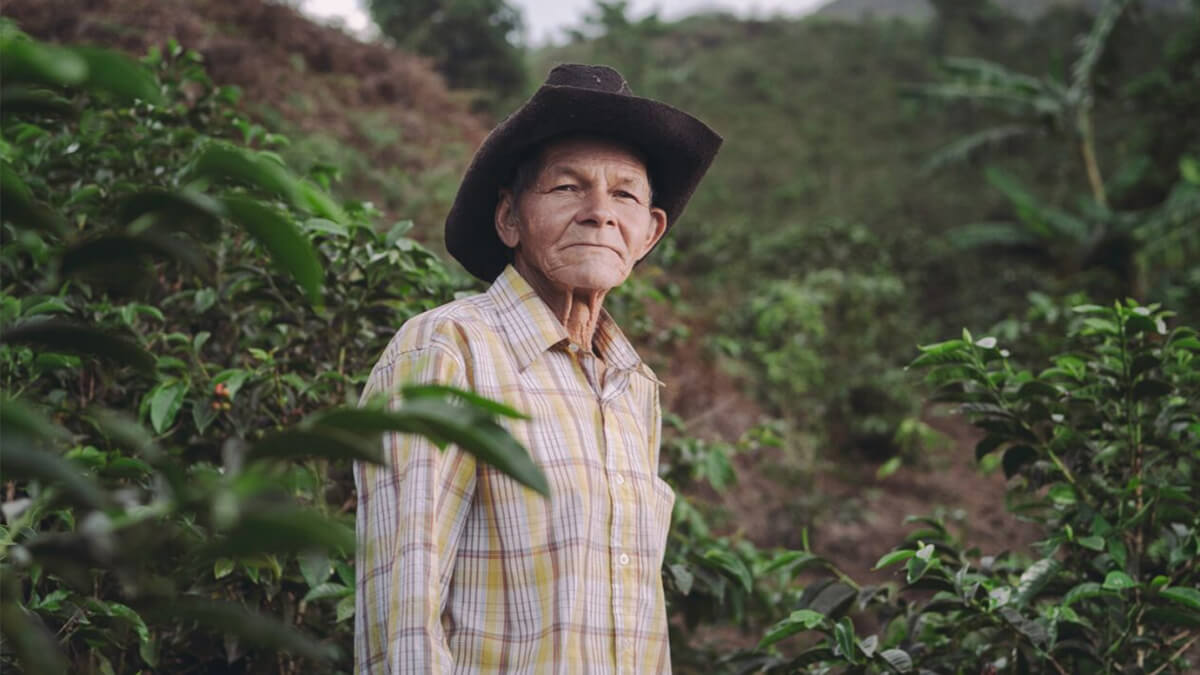While Brazil remains one of the world’s highest producing coffee countries, Columbia is not far behind, being the world’s third-biggest exporter of coffee. However, the country has been impacted by economic issues which has seen many coffee farms close down, or younger generations seeking new and better opportunities in the big cities. This is a concern for many of us coffee lovers, and it’s extremely sad to see coffee farmers struggling to support their community. This is why Lincoln Coffee House & Roaster works hand in hand with Gregorio’s coffee farm in Colombia. Through this relationship, we are able to pay higher than fair trade to help them improve harvest methods and reduce the impacts of the Colombian economic crisis.
Producing Organic, Flavoursome Coffee: Direct Trade With Columbia
Colombia has been growing coffee since the nineteenth century, and produces around 8.9 million 60kg bags a year that represents around 16% of the country’s wealth. The tropical environment of Colombia makes it perfect for growing coffee, and you can find dozens of coffee farmers high up the mountains, which are most commonly grown in the regions of Caldas, Quindío and Risaralda. Having a strong reputation of exceptional and high quality coffee, we contacted Brain and his wife, Diana, founders of the Colombian Artisan Coffee, via social media to begin a trade relationship.
- About Gregorio’s Farm
- Overcoming Economic Issues
- Organic Coffee Production
- About Colombia La Sierra
- Our Columbia Coffee

About Gregorio’s Farm
Gregorio’s farm is located on top of a mountain in the central Andes 1,450 meters above sea-level. The farm contains the following varietal:
- 50% Colombian – the Colombian varietal is a cross between Caturra and Timor Hybrid, and is rust-resistant.
- 50% Castillo – the Castillo varietal is extremely popular in Colombia due to its rust-resistance and high yields, producing a higher quality harvest.
Dedicated to providing high-quality harvest, the family house is also used for pulping, fermenting, washing and drying. Due to the onsite education provided by Colombian Artisan Coffee, Gregorio has improved his scores from 82 to 85+.

Overcoming Economic Issues
Due to the economic, institutional and security problems that affect the coffee-growing industry in Colombia, many local families have been indirectly forcing younger generations out of the region and into the bigger cities in search of better opportunities. Still, Gregorio was one of his nine brothers who wanted to be a farmer like his father instead of moving to Medellin. This is excellent news for the coffee community in the local area, as it helps to keep the business running for many generations to come and continues to provide income for many working on the farm, which is then put back into the local community.
Organic Coffee Production
Among farming coffee, Gregorio is also a beekeeper. As a result, his plantation is pollinated by bees, making his coffee organic. Bees play a significant role in agriculture; they pollinate crops, increase yields, and give rise to a lucrative honey industry. Bees are so important for coffee farmers, and millions are spent renting hives to pollinate farmers’ crops.

About Colombia La Sierra
Over the mountain in La Sierra neighbourhood, commune 8 of Medellín, there is a group of farmers who produce high-quality coffee. The coffee of this micro-lot was harvested in 3 farms of the region: El Descanso, El Tractor, and Villa Sierra. After picking, the ripe cherries are transported to the wet mill, which is called Renacer (meaning ‘new growth’ in Spanish); it’s here where the magic happens. The mill develops the Alcoholic-Lactic process, which gives this coffee a unique flavour. Nowadays, the farmers can concentrate exclusively on the collection of their beans, and Renacer wet mill is focused on processing and experimentation. Colombian Artisan Coffee set aside part of our profit to help to fund local agricultural training and experimentation projects
The coffee produced by the Renacer mill is quite unusual; only a small amount is processed using the alcoholic lactic process. The process of using alcoholic lactic makes the coffee quite rare; we only purchased one sack as it came at a considerable cost. That being said, the coffee is worth the price tag, it shows how amazing and bright coffee producers are getting, it shows they are doing something different which stands out from the crowd. On the flip side, if the process isn’t controlled, it can have devastating effects on the coffee, entire lots can be wasted trying to achieve this process. By buying this coffee and showcasing it to consumers, it means Renacer can still keep working and experimenting. This allows the continuation of the cycle of buying and selling. Over time, the relationships we create with coffee means we understand more about the beautiful people going to great lengths to produce unusual and delicious coffee. As a roaster, it’s about showcasing the hard work of the producers.

Our Columbia Coffee
After purchasing coffee from Gregorio’s farm, we have established a distinct and interesting profile for the Colombian coffee beans. Using our top of the line sample roaster (Ikawa) we have perfected the profile and continue to provide a coherent product through controlling the roasting process.
